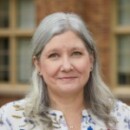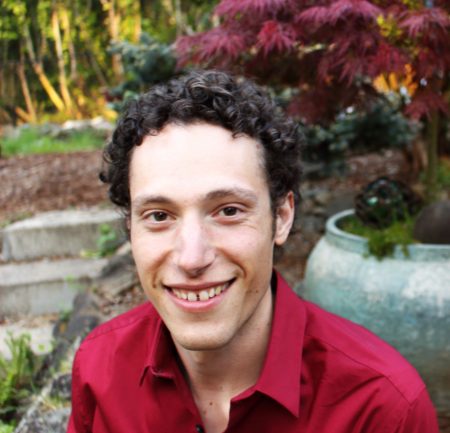Page 103 • (5,289 results in 0.122 seconds)
-
“Attending a chemistry program at a small liberal arts school…gave me post-graduation opportunities! I was able to do research at PLU, research through an REU program at an R1 school, and had multiple post-graduation options months before I graduated. Thank you for preparing me for a life of inquiry in the sciences!” – Caleb Chandler ’17 Research By Area Analytical and Environmental Chemistry Angie Boysen, Ph.D. Brian Naasz, Ph.D. Biochemistry Tina Saxowsky, Ph.D. Dave Song, Ph.D. Physical
-
the 19th and early 20th centuries and counted as FREN 202. Selected bibliography: François-René de Chateaubriand, René (1802) Victor Hugo, Préface de Cromwell (1819) Alphonse de Lamartine, Méditations poétiques (1820) Alfred de Musset, Lorenzaccio (1834) Gérard de Nerval, Sylvie (1853) Interdisciplinary ProgramsInterdisciplinary Programs TutorialsCorinne Lythgoe, '19, Environmental Studies and Sociology:My tutorial was called “Food Security” and counted as a 300 level course for my Environmental
-
school teacher and grew into an accomplished area superintendent. She developed a strong, solid ability to raise student achievement in tough urban districts. Carla and her husband, Larry, raised four children in Denver. Just prior to coming to Tacoma in 2009, she worked as the chief academic officer for the Seattle School District. Carla collaborated with the Tacoma Public Schools Board of Directors to adopt the district’s first strategic plan in 2011 with four goal areas and 35 benchmarks of
-

: teaching. Teaching Philosophy Although I believe that part of a professor’s job is to instruct students and give them basic knowledge, a much larger part of the job is encouraging students to take an active role in their own learning. By being enthusiastic about psychology and education in general, I try to motivate students and stimulate their natural desire to learn. To achieve this goal, I try to teach students to apply the material in their own lives and become good critical consumers of
Area of Emphasis/Expertise -
honors may be granted by vote based on the student’s performance in the following areas: Anthropology coursework requires minimum 3.50 GPA. Demonstration of active interest in anthropological projects and activities outside of class work. Completion of a senior thesis. A paper describing independent research must be conducted under the supervision of anthropology faculty. A proposal must be approved by the faculty by the third week of class of the Fall Semester for May and August graduates, and the
-
involved in a current or previous intimate or sexual relationship. Sexual Misconduct may vary in its severity and consists of a range of behavior.” For more information, you can read the PLU Sexual Misconduct Policy.Resources for Sexual Assault VictimsThe Center for Diversity, Justice, & Sustainability’s Advocacy Services* is a confidential resource that provides support for victims of sexual assault, including obtaining a Protection Order, learning how to increase their safety, and connecting with
-
impact the delivery of and access to social services; apply critical thinking to analyze, formulate, and advocate for policies that advance human rights and social, economic, and environmental justice.3. Upon completion of the social work program, students will be able to assess individuals, families, groups, organizations, and communities by collecting and organizing data and applying critical thinking to interpret data, applying knowledge of human behavior and the social environment and other
-
strategies for integrating young adult reading materials and written work and reading and writing instruction in all secondary content areas. (2) EDUC 544 : Sociocultural Foundations of Education Examines the purposes of K-12 schools, the root causes of the achievement gap, and the ways accomplished teachers adapt to the changing sociocultural context of schooling. (2) EDUC 556 : Critical Issues in Secondary Teaching Introduces what successful secondary teachers know and are able to do in the areas of
-
Why Study Physics?Physics is the scientific study of the material universe at its most fundamental level. A physicist might study the inner workings of atoms and nuclei, the size and age of the universe, the behavior of high-temperature superconductors, or the life cycles of stars, from their formation out of interstellar gases to their end-states as pulsars or black holes. Physicists use high-energy accelerators to search for quarks; they design new laser systems for applications in medicine
-

Justin Lader Visiting Assistant Professor of Music Education Phone: 253-535-7602 Email: justin.lader@plu.edu Office Location: Mary Baker Russell Music Center - 114 Website: https://www.justinlader.com/ Professional Biography Education PhD, Music and Human Learning, The University of Texas at Austin, 2024 M.M., Viola Performance, University of Oregon, 2012 B.M., Viola Performance, Oberlin Conservatory, 2009 B.A., Environmental Studies, Oberlin College, 2009 Areas of Emphasis or Expertise Music
Area of Emphasis/Expertise
Do you have any feedback for us? If so, feel free to use our Feedback Form.


